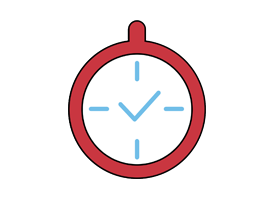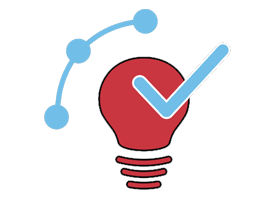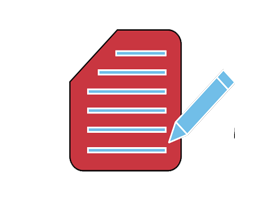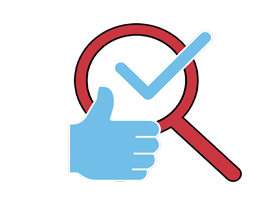Individualized Development Plan (IDP)
The Faculty of Graduate Studies' IDP is a tool to assist graduate students, like you, to identify and develop your goals during your studies.
When creating an IDP, with the help of a mentor, you can enhance your professional growth and skills by:
- Setting and communicating goals related to teaching, research, and/or professional development with your supervisor, faculty colleagues, or other mentors
- Identifying ways to learn or improve your competencies to be used during your graduate work and within professional spaces
- Identifying your strengths, talents, and passions, as well as opportunities to use them during your studies and in your future professional life while building an effective support network


Self-Assessment/
Reflection
Looking back while planning for the future

Setting Goals
Clarifying the knowledge and skills you need

Exploring Opportunities
Developing a strategy for realizing your plan

Engagement
Acting on your plan to achieve your goals

Check-In
Revisit to update your goals and engagement activities
Download the IDP
Revisit your IDP to update your goals and engagement activities throughout the year, at time intervals you/your mentor deem most appropriate.
Or
Download the IDP (Abridged Version)
This IDP is an abridged version that has been designed for graduate students who prefer a more streamlined option compared to the full IDP based on their individual preferences.
The IDP is designed to provide a framework for encouraging active participation in professional skills training and career management. It consists of a document that is meant to evolve during your studies to better reflect your changing goals and to highlight your progress and accomplishments.
No, but it is recommended. It is a great tool to keep yourself on track during your studies and to provide insight into your strengths when deciding what to pursue post-graduation. Choosing to complete one, several or all sections is at your discretion.
Above all, the Faculty of Graduate Studies encourages you to set goals for the academic year and discuss your plans with your mentor(s), when appropriate.
Graduate students that elect to complete an IDP receive a Certificate of Completion to highlight on their resume/CV. Providing a copy of one's IDP is not requested nor required to receive the certificate. Certificates can be requested at any time by registering your completion in YU Learn.
Creating an IDP
The IDP includes a self-assessment worksheet for graduate students to reflect on their recent activities and future goals.
- An IDP can be used to communicate your professional development and career planning needs and intentions to others, including your supervisor. This can lead to helpful advice, resources and connections.
- In the student-supervisory relationship, the IDP can be used to ensure that you and your supervisor both understand and are in agreement with the expectations of the progress of your work. This is especially important near the end of your studies.
As you work on your IDP, asking for support from a mentor, your supervisor (who may also be your mentor), or Graduate Program Director (GPD) is encouraged. We recommend revisiting your IDP at least once a year in order to assess any activities and outcomes and to revise your plans and expectations for the future.
To help you to complete the self-assessment and engagement sections, we encourage you to draw on the information and resources available through the Graduate and Postdoctoral Professional Skills (GPPS) webpage. Your GPD will also be able to provide further information about professional skills opportunities offered through your program, and your supervisor may also be able to suggest concrete examples of activities and goals that are relevant to your field of study.
How to begin
A Guide for Supervisors/Faculty Mentors
Designed for academic supervisors and other faculty mentors, such as supervisory committee members, seeking a short overview of graduate professional skills programming at York University and to encourage a productive dialogue with mentees around career planning and exploration: Guide for Supervisors/Faculty Mentors (.pdf).
Making use of the IDP as the base tool for conversations on professional skills development, the following questions can help lay a supportive foundation for ongoing discussions:
- Have you considered booking a 1x1 advising appointment with the Career Centre to discuss your plans further? Note: Susan Pogue, Career Counsellor—spogue@yorku.ca meets with graduate students and can advise on academic- and non-academic career planning
- Are there certain professional skills areas you see being most beneficial in developing further, in line with your current or future aspirations?
- Has the IDP assisted you in identifying opportunities you would like to participate in?
- Are there specific individuals/groups I can assist in providing introductions to expand your network and build collaborative relationships with others?
- What kinds of opportunities would you find most interesting and/or fulfilling post-graduation?
If you would prefer a one-page printout, please refer to the Guide for Supervisors/Faculty Mentors (.pdf). This document is designed for academic supervisors and other faculty mentors seeking a short overview of graduate professional skills programming at York University and to encourage a productive dialogue with supervisees around career planning and exploration. It includes the list of guiding questions for meeting with students featured above that can help approach the topic.
When should you speak with your students and about what:
Master’s student
Year 1
- Fall term: introduce the IDP at orientation and/or in seminar courses
- Winter term: approach during the annual progress report completion and review goals achieved and future goals
Year 2
- Fall term: continue conversations on professional development goals and relevant supports
- Winter term: approach during the annual progress report completion and review goals achieved and future goals. Encourage further career development opportunities, where appropriate
PhD student
Year 1
- Fall term: introduce IDP at orientation and/or seminar courses
- Winter term: approach during the annual progress report completion and review goals achieved and future goals
Year 2
- Winter term: approach during the annual progress report completion and review goals achieved and future goals
Year 3
- Fall term: continue conversations about professional development goals and engagement opportunities
- Winter term: approach during the annual progress report completion and review goals achieved and future goals
Year 4
- Fall term: continue conversations about professional development goals and engagement opportunities
- Winter term: approach during the annual progress report completion and review goals achieved and future goals. Encourage further career development opportunities, where appropriate
Year 5+
- Fall term: continue conversations about professional development goals and engagement opportunities
- Winter term: approach during the annual progress report completion and review goals achieved and future goals. Encourage further career development opportunities, where appropriate
A lesson plan with a 60-75 minute activity has been designed for instructors to go over a select portion of the IDP with students as part of an appropriate course in the program. This can be used, for example, as a primer for faculty members introducing the IDP to students, in workshops for students, as a lesson within a seminar course in which you go over student success strategies, etc.
Guidance for Program Administrators (Graduate Program Directors, Program Staff)
For program administrators seeking ways to support graduate students and faculty mentors to actively engage in professional skills development via the IDP.






